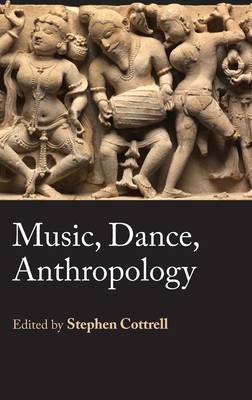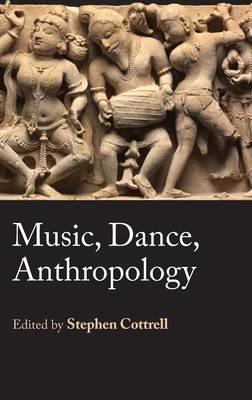
- Retrait gratuit dans votre magasin Club
- 7.000.000 titres dans notre catalogue
- Payer en toute sécurité
- Toujours un magasin près de chez vous
- Retrait gratuit dans votre magasin Club
- 7.000.0000 titres dans notre catalogue
- Payer en toute sécurité
- Toujours un magasin près de chez vous
Music, Dance, Anthropology
Description
This volume celebrates the significant resurgence of interest in the anthropology of music and dance in recent decades. Traversing a range of fascinating topics, from the reassessment of historical figures such as Katherine Dunham and John Blacking, to the contemporary salience of sonic conflict between Islamic Uyghur and the Han Chinese, the essays within Music, Dance, Anthropology make a strong argument for the continued importance of the work of ethnomusicologists and ethnochoreologists, and of their ongoing recourse to anthropological theories and practices. Case studies are offered from areas as diverse as Central Africa, Ireland, Greece, Uganda and Central Asia, and illuminate core anthropological concepts such as the nature of embodied knowledge, the role of citizenship, ritual practices, and the construction of individual and group identities via a range of ethnographic methodologies. These include the consideration of soundscapes, the use of ethnographic filmmaking, and a reflection on the importance of close cultural engagement over many years.
Taken together these contributions show the study of music and dance practices to be essential to any rounded study of social activity, in whatever context it is found. For as this volume consistently demonstrates, the performance of music and dance is always about more than just the performance of music and dance.
Spécifications
Parties prenantes
- Editeur:
Contenu
- Nombre de pages :
- 280
- Langue:
- Anglais
- Collection :
- Tome:
- n° 46
Caractéristiques
- EAN:
- 9781912385317
- Date de parution :
- 15-09-21
- Format:
- Livre relié
- Format numérique:
- Genaaid
- Dimensions :
- 156 mm x 234 mm
- Poids :
- 566 g

Les avis
Nous publions uniquement les avis qui respectent les conditions requises. Consultez nos conditions pour les avis.





